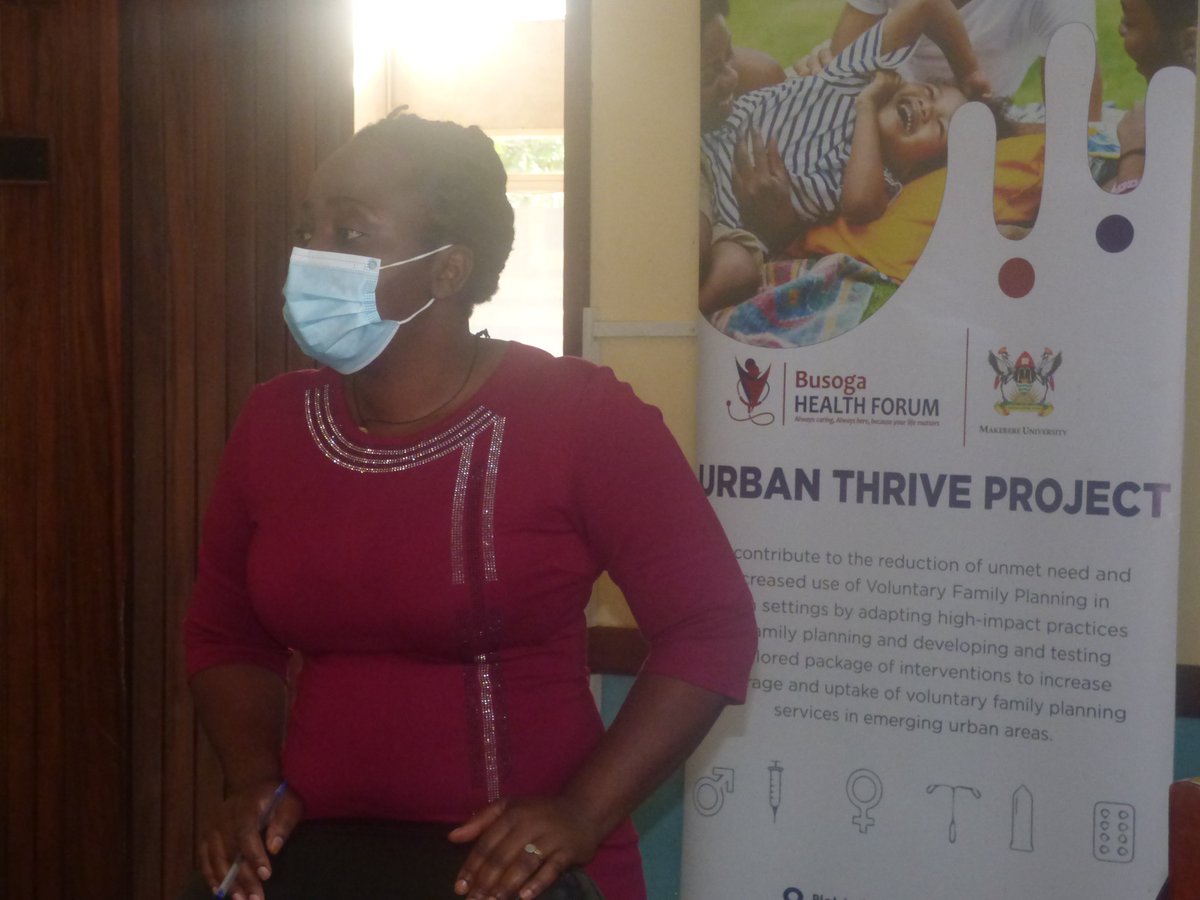
Increasing coverage and uptake of voluntary family planning in emergent towns and cities in Uganda – the case of Jinja and Iganga
This Urban Thrive Project (UTP) aims to increase coverage and uptake of voluntary family planning (VFP) in emergent Ugandan urban spaces by exploring the coverage of VFP and associated barriers or facilitators; and designing and implementing a tailored model of high-impact interventions.
The goal is to contribute to reducing unmet need and increasing use of modern FP in Uganda.
Rapid urbanization is a global challenge especially in Sub Saharan Africa, where it is characterized with poor planning, informality, and inequalities. The complexities and heterogeneity in service delivery settings or health infrastructure of urban spaces affect capacity to provide optimal services. There is an imperative need for innovative approaches to deliver or scale-up FP services, that overcome barriers faced by urban dwellers. Our general question is what interventions can effectively be packaged and delivered to increase uptake of VFP and promote urban thriving. Using participatory approaches, we will co-design (validate and adapt proven high-impact practices for FP) and implement a tailored package of interventions including educating and disseminating information through community groups, media and social networks; building capacity of providers, strengthening availability of commodities and community-based services. We will also support urban leaders for better governance/management of FP services. We anticipate that the developed model will inform Uganda’s urban health policy and also inform scale-up in other urban settings in or out of Uganda. The project aligns with the health sector development plan which has prioritized urban spaces and urban health, as well as the second national FP costed implementation plan that calls for continuous research on FP dynamics, including what works to improve FP services in different contexts
This 4-year project (July 2021 – March 2024) is funded by John Templeton Foundation. In partnership with the Ministry of Health in Uganda and Busoga Health Forum.
Project objectives:
General objective: To contribute to the reduction of the unmet need for and increased use of FP in urban settings by adapting high-impact practices in FP and developing and testing a tailored package of interventions to for effective delivery and increased coverage and uptake of VFP services in emerging urban areas. The project also aims to contribute to improved performance of urban health systems in the study sites about VFP.
Specific objectives
- To develop and implement a tailored package of high-impact interventions fit for emerging urban settings in Uganda using participatory approaches
- To improve understanding of FP and decision-making capacity for healthy reproductive or contraceptive behaviors; strengthen effective delivery and management of FP services through a tailored package of high-impact interventions.
- To explore the current coverage of VFP and barriers and facilitators of contraception use in emergent urban settings in eastern Uganda
- To assess the effectiveness, facilitators and barriers of the proposed intervention package in improving VFP service provision, accessibility and utilization
Outcomes
- New clients and previously underserved people using voluntary family planning to act on their reproductive choices on timing and number of children
- Users satisfied with the voluntary family planning (VFP) services provided
- Improved delivery and management of quality family planning services.
Proposed activities and result areas
Result 1: Increased knowledge and understanding of VFP among women, men and young people
- Activity 1.1. Training and supervision of gender and age-sensitive participatory community groups
- Activity 1.2. Support and enhance implementation of media-based social and behavioral change and use of digital technologies.
- Activity 1.3. Strengthen provider-initiated VFP counseling.
Result 2: Improved delivery of VFP services
- Activity 2.1. Developing/enhancing knowledge and skills of healthcare providers
- Activity 2.2. Strengthen availability of FP commodities and services.
- Activity 2.3. Strengthen community-based provision of VFP services.
- Activity 2.4. Strengthen application and use of digital technologies to support service delivery.
- Activity 2.5. Improve referral care and management of FP side effects.
Result 3: Governance and management
- Activity 3.1. Improve alignment of FP services to reduce unmet need.
- Activity 3.2. Institutionalization and sustainability: Support better planning and integration of VFP into urban plans
